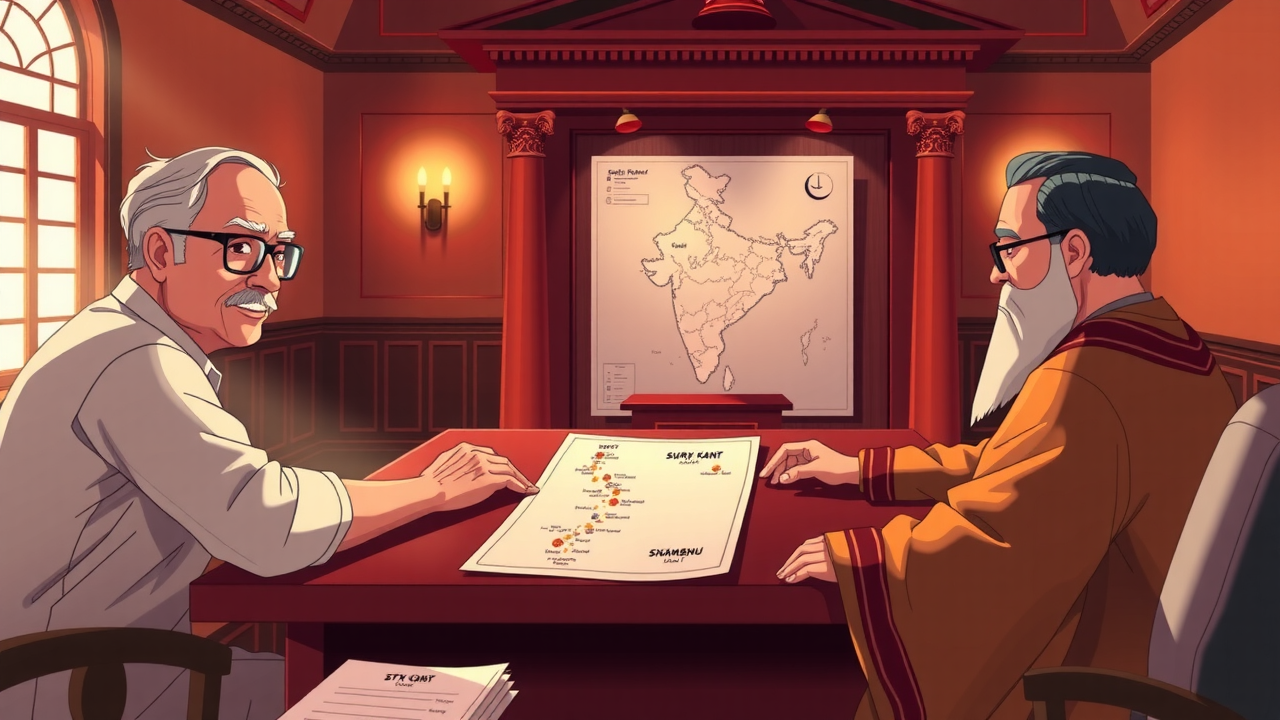The Supreme Court of India is set to establish a committee to address the ongoing farmer protests that have blocked the Shambhu border between Punjab and Haryana. The Court emphasized the need for a negotiated resolution and has asked the states to submit proposed issues for the committee to tackle.

In a significant development, the Supreme Court of India has addressed the ongoing blockade on the national highway at the Shambhu border, an issue that arose due to the prolonged farmers’ protests. During the hearing on August 22, the Court declared its intention to pass an order within a week concerning the constitution of a Committee to negotiate with the protesting farmers. The dispute, which has resulted in the blockade of the Shambhu border between Punjab and Haryana, stems from demands such as the statutory guarantee for the Minimum Support Price (MSP) for crops. The Supreme Court aims to resolve the issue by establishing a forum for negotiation between the States of Punjab and Haryana and the protesting farmers.
Supreme Court to Constitute a Committee
- The Bench, comprising Justices Surya Kant, Dipankar Datta, and Ujjal Bhuyan, stated that the States of Punjab and Haryana should submit proposed issues for the Committee’s mandate within three days.
- The Court emphasized that the reference to the Committee would have a wider mandate, ensuring that issues causing law and order problems could be resolved amicably and fairly.
- The Bench added that the State representatives must continue to meet with the farmers and provide updates during the next hearing. Furthermore, Punjab was granted liberty to suggest additional names for the Committee within three days.
Haryana’s Plea and the Shambhu Border Blockade
- The case involves Haryana’s plea against the Punjab and Haryana High Court’s direction to unblock the Shambhu border, which was closed in February 2023 due to the farmers’ protests.
- The farmers have demanded a statutory guarantee for MSP for crops, resulting in the blockade.
- Both Punjab and Haryana had previously submitted names to the Supreme Court for inclusion in the panel to hold negotiations between the farmers and the government.
Police and Government Actions
- The Supreme Court also directed the Director Generals of Police of Punjab and Haryana, along with senior officials from Patiala and Ambala, to meet within one week to establish the modalities for a partial opening of the highway.
- The partial reopening would permit essential services such as ambulances, senior citizens, women, students, and local commuters to pass through the blockade.
- Punjab’s Advocate General Gurminder Singh reported that this meeting had taken place on August 19, during which discussions were held with the farmer unions.
Progress of Negotiation
- During the proceedings, Justice Kant inquired about the progress, to which AG Gurminder Singh responded: “They did not have issues with the opening of the highway; however, the unions remain resolved to continue their agitation.”
- He added that the farmers preferred to protest legally and that the use of trolleys during prolonged protests offered some respite in harsh weather conditions. He said, “To that, they have taken time in saying that these trolleys, in prolonged agitations, are the only respite that they have in harsh weather conditions. So, that we will deliberate and get back on.”
Supreme Court’s Remarks and Further Steps
- Justice Kant remarked that the Committee’s composition and the issues to be resolved were nearly finalized, noting that the Court had conducted inquiries to ensure that the issues raised by the farmers were addressed.
- He further assured the State of Punjab that the Court was inclined to create a forum to identify and address the farmers’ grievances, stating: “Meanwhile, we will formally constitute in three-four days….We have done our homework but we want you also to identify the issues that you think the committee should look into.”
- When Haryana AAG mentioned the farmers’ insistence on using tractors and trolleys to reach Delhi, Justice Kant remarked: “That we will take as their innocuous (version) because they think that if we go like this then probably they will have an effective voice. In a democratic set-up, these kinds of impressions (are there). We will not take any offence…”
Committee’s Powers and Authority
- The Court clarified that the Committee would have the power and authority to make recommendations that the State governments and Union would need to consider.
- When AG Gurminder Singh suggested holding another meeting before the next hearing, the Court agreed and scheduled the next hearing for September 2, 2023.
Background of the Shambhu Border Blockade
- The Shambhu border blockade occurred in February 2023, when Haryana closed the border to prevent the movement of protesting farmers from Punjab.
- The Supreme Court had earlier asked both Punjab and Haryana to suggest neutral persons for inclusion in the negotiating committee.
- The Bench emphasized that the border needed to be opened for essential services, with Justice Kant noting: “An ambulance carrying patients or a car carrying senior citizens cannot be prevented.”
- The Court suggested that police personnel from both states coordinate to allow such vehicles to pass through the blockade.
Click to read: THE STATE OF HARYANA VS. UDAY PRATAP SINGH., DIARY NO. – 30656/2024





